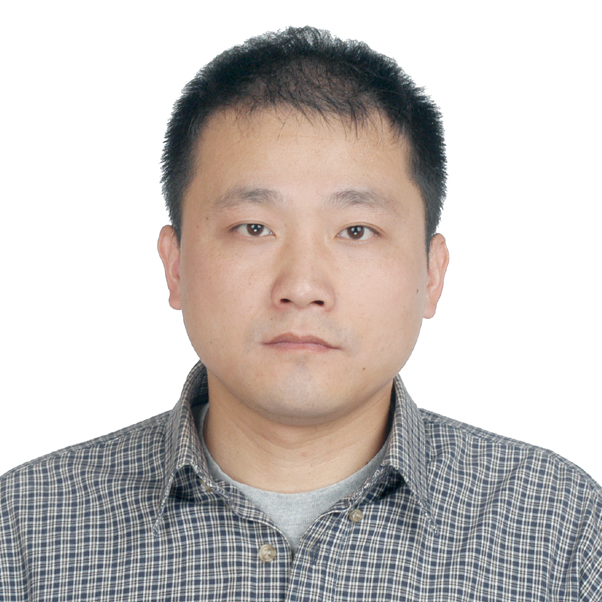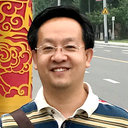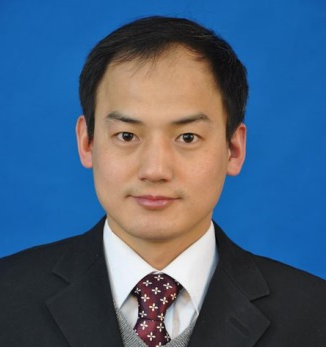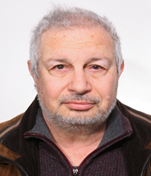Keynote Speaker I

Prof. Hongchun Qu, Chongqing University of Posts and Telecommunications, China
BIO:
Hongchun Qu received the Ph.D. degree in computer science and technology from Chongqing University, Chongqing, China, and Iowa State University, Ames, IA, USA, in 2009.,During 2010 and 2012, he was a Postdoctoral Researcher with the University of Tübingen. Since 2013, he has been a Professor with the College of Automation and College of Computer Science, Chongqing University of Posts and Telecommunications (CQUPT), Chongqing, China, where he also serves as the Director of the Institute of Ecological Safety, Forecasting and Control. His research interests include computer simulation and modeling, machine learning, and data science.
Speech Title:
Agent-based Modeling and Simulation for Pollination Ecology and Applications in Agroecosystems
Abstract:
Agroecosystems are the ecosystems supporting the food production. In most cases, pollination activities, are the most important and complex processes in which animals, plants, microbes, and other living organisms and their environment are interdependent and regularly interact. However, the high variability of plants in spatial and genetic structure, in combination with foraging behavior varying between species, and the complexity of these factors interacting over time and space, are major obstacles to understanding of pollination dynamics subject to environmental change. The agent-based modeling and simulation paradigm provides an ideal approach to bridging the gap between known mechanisms of individual organisms and unknown spatial-temporal dynamics of pollination at the field scale. By linking empirical data to stochastically-based ecological process modeling, we present a Spatially-explicit Agent-based simulation model that enables exploration of how various factors, including plant spatial arrangements, outcrossing and self-pollination, bee species compositions and weather conditions, in isolation and combination, affect pollination efficiency. The firmly validated open-source model is a useful tool for hypothesis testing and theory development for pollination researches, particularly for understanding pollination services and their functionalities shaping agroecosystems’ productivity.
Keynote Speaker II

Prof. Yufei Gao, Shandong University, China
BIO:
Dr. Gao is a professor of Mechanical Engineering at Shandong University(SDU), and deputy director in Institute of Mechanical Design and Theory of SDU. His current research interests include precision wire saw slicing for crystal materials and photovoltaic silicon solar cells; electroplated diamond saw wire preparation; Design and analysis of intelligent equipment.
Speech Title:
Finite element simulation on the fracture probability of photovoltaic monocrystalline silicon wafers
Abstract:
Vigorously developing solar photovoltaic power generation is an important measure to achieve the goal of "double carbon". At present, photovoltaic silicon crystal cells are developing towards large size and ultra-thin, and the as-cut wafer breaking in diamond wire slicing is prominent in the manufacturing. Due to the decreasing kerf width, Adjacent silicon wafers will adhere together due to the capillary phenomenon of cutting fluid between the kerf, causing bending stress on the silicon wafers. This report introduces the application of finite element simulation method to calculate the coupled stress of silicon wafer bending stress, sawing thermal stress, and sawing mechanical stress during the sawing process. Furthermore, based on the Weibull probability function, the probability of silicon wafer breakage under maximum coupling stress was predicted.
Keynote Speaker III

Prof. Mouquan Shen, Nanjing Tech University, China
BIO:
Professor Shen, a recipient of the esteemed "Six Talent Peaks" award from Jiangsu Province, holds a postdoctoral position at Southeast University and has served as a visiting scholar at renowned universities such as the University of Hong Kong, Yeungnam University in South Korea, and the University of Adelaide in Australia. He serves as the Principal Investigator of over 10 provincial- level projects, including grants from the National Natural Science Foundation of China, the National Bureau of Foreign Experts Affairs, and the Jiangsu Provincial Natural Science Foundation.
In recent years, Professor Shen has authored over 100 academic papers, boasting an H-index of 24, which have been published in prestigious journals such as IEEE Transactions on Automatic Control, IEEE Transactions on Cybernetics, and IEEE Transactions on Systems, Man, and Cybernetics: Systems. He has held esteemed positions as Editor-in-Chief, Associate Editor, or Editorial Board Member of 12 international journals. Additionally, he serves as an active reviewer for more than 80 domestic and international journals, including IEEE TAC and Automatica. Professor Shen also fulfills the role of a corresponding reviewer for the National Natural Science Foundation of China and numerous provincial and municipal science and technology projects.

